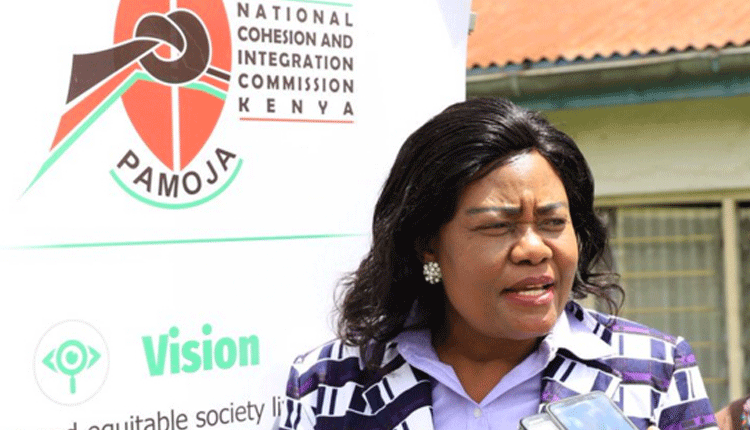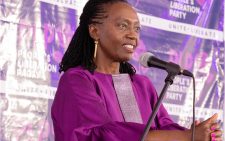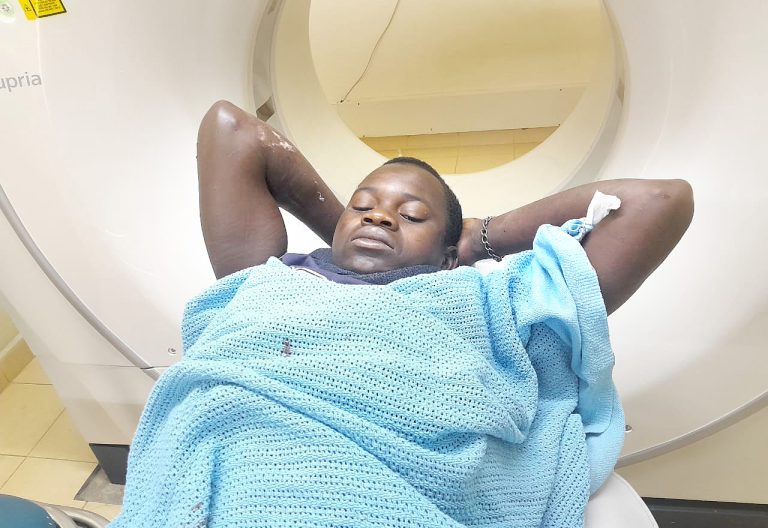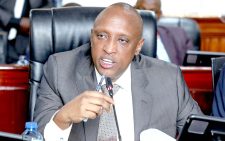NCIC raises red flag over hate speech ahead of polls

Wycliffe Kipsang
As the 2022 General-Election draws closer, the National Cohesion and Integration Commission (NCIC) is on high alert to rein in politicians who spew hate speech at their rallies.
The commission has embarked on mapping out possible political violence hotspots in the country ahead of next year’s polls.
NCIC chairperson Rev Samuel Kobia said the commission is committed to ensuring peace that prevails during and after the elections.
“Our worry is also the increase of hate speech on social media. We shall be working with other government agencies including the Communications Authority (CA) to curb the vice,” Kobia told People Daily in an interview yesterday.
NCIC Commissioner Dorcas Kedogo said the commission is in the process of scrutinising many social media platforms and WhatsApp groups created by some politicians to insult opponents adding that those found to be fueling hate speech will be dealt with as per the law.
“We are investigating a number of politicians who have used the youth to create platforms to engage in abusive language with opponents,” said Ms Kedogo.
The commission has also put on notice youth spewing hate speech on social media with Kedogo saying that stern action will be taken against them.
Preaching peace
She said NCIC had set up a roadmap for 2022 dubbed ‘Elections Bila Noma’ bringing on board all stakeholders in a bid to preach peace ahead of the elections.
“We want to sensitize the youth to ignore politicians who incite them to cause violence. We want them to instead be ambassadors of peace,” said Ms Kedogo.
The commission is also set to introduce ‘a wall of shame’ for politicians who breach codes of conduct governing elections.
Kobia said this was a new declaration of principles and national values which aspirants and elected leaders in the country will have to observe to avert hate speech and violence during the electioneering period.
The “Wall of Shame” will name individuals who defy the codes of conduct as well as national values before,during and after elections.
“As part of the regulations, there will be a declaration of principles and national values by political leaders,” explained Rev Kobia.
The commission has already unveiled a multi-agency technical committee to steer holistic strategies aimed at promoting peace and cohesion ahead of the elections.
Various stakeholders
The team draws it’s membership from organisations including Independent Electoral and Boundaries Commission (IEBC), Ethics Anti-Corruption Commission (EACC) and the Office of the Registrar of Political Party (ORPP).
It will focus on public education on peace and cohesion by devising conflict resolution mechanism, overseeing citizen education programmes as well as actualizing transformative and servant leadership in line with NCIC’s roadmap for peaceful elections.
Uasin-Gishu, Kisumu, Nairobi and Naivasha were some of the major post-election hotspots following the disputed presidential results in 2008 which resulted to the death of 1,133 people and the displacement of over 650,000 others from their homes. Rift Valley was the hotspot with over 744 deaths being reported.










